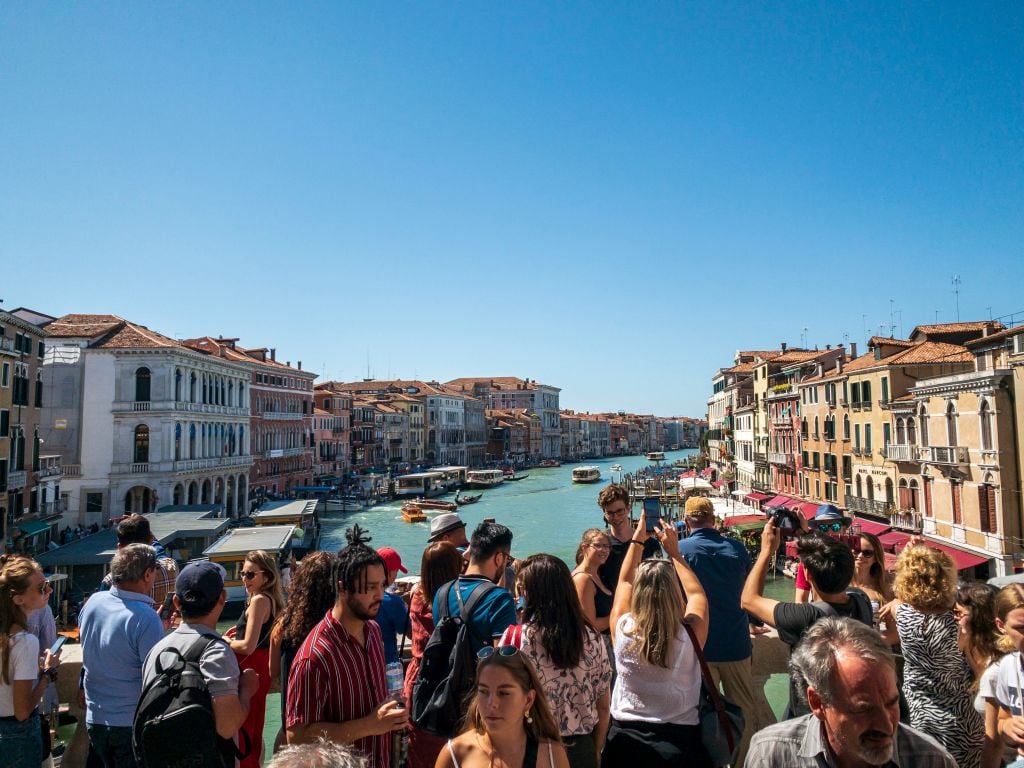
Tourists, be warned. The so-called floating city of Venice is about to start charging a fee for day trippers, and only those with a prior reservation will be allowed to enter.
City officials have tried to tamp down on Venice’s mushrooming crowds with varying degrees of success in recent years. UNESCO contemplated putting Venice on its list of endangered World Heritage Sites in 2021, writing that “the continued deteriorating effects of human intervention, combined with climate change on the vulnerable lagoon ecosystem, threaten to result in irreversible change.”
A years-long battle to ban cruise ships from docking in the city’s narrow waterways finally resulted in the government granting heritage status to the lagoon in 2021. Last year, the city implemented a controversial new mode of surveillance to gather cell phone data from visitors so that authorities could spot crowds and disperse them.
Mayor Luigi Brugnaro tweeted the announcement of the new fee, writing that the system will be “a breath of fresh air for operators” and will make for “a more balanced management of tourism.” CNN reports that over the Easter weekend this year, 120,000 tourists arrived on Saturday, and the number swelled to 158,000 on Sunday. In a city with a local population that hovers around 50,000 residents, the volume is untenable.
Starting this summer, visitors can make reservations for a day trip on a new portal, which councillor Simone Venturini described as “very simple and quick,” as a sort of trial run before the entry fee takes effect in January 2023. From this summer until January, the bookings will be voluntary, with incentives like skipping the line at a museum or historic site offered to those who participate. Starting in 2023, the fees will range from €3 ($3.25) to €10 ($10.85) depending on the number of visitors and time of year.
The booking system will help manage the chaos in advance, according to Venturini. “We can say, ‘Dear visitor, we don’t advise coming on this date because it’s Ferragosto [August public holiday] or Easter—there’ll be a lot of people so it will hinder you from having a peaceful visit, and if you make it a week later you can enjoy your visit more.”
Venice may be the first city to take such measures, but it won’t be the last. Venturini predicts that many other European metropolises will adopt similar approaches, and will learn from watching how things go in Venice.